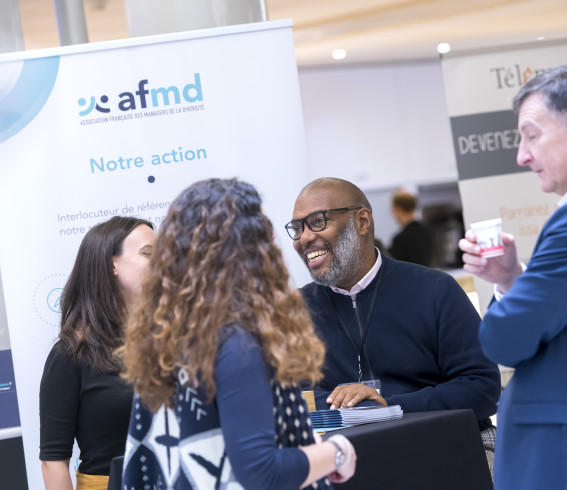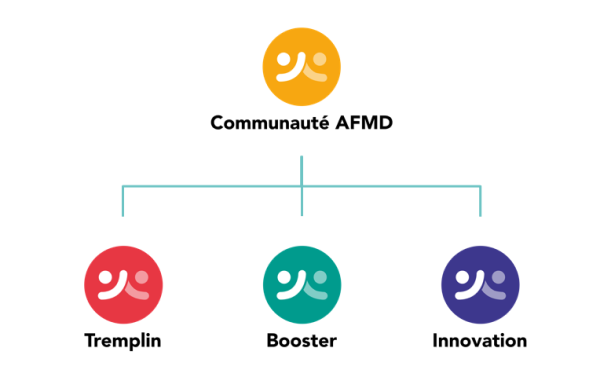Activities and members experience
The AFMD offers different types of activities on diversity management-related issues.
We develop different types of activites pertaining the needs of our members. The methods and contents depend on the aims of the activities: exploring a topic, comparing experiences, sharing knowledge...

AFMD Members Experience is built around core contents and specialised paths. Members are encouraged to follow the paths depending on their needs and objectives.
Discover the paths' contents bellow!

The AFMD Community
The AFMD Community is the core of the associative experience. It is structured around meetings and networking events to interact with your peers and discuss common interests.
Activities: afterworks, invitations to tender, conferences, newsletters, focus on trending topics...
Tremplin Path
Objectives: discovering the community, understing the basics of D&I policies, assessing one's needs
Main focus: D&I Policies 101
Activities: new members' onboarding, mentorship, webinars
Booster Path
Objectives: sharing and discussing with peers, reviewing best practices, gaining and strengthening new skills
Main focus: D&I Policies best practices
Activities: experience sharing workshops, testimonies, networking
Innovation Path
Objectives: delving into upcoming topics, participating in knowledge and tools production, inspiring the D&I ecosystem
Main focus: Exploration, working group
Activities: shared initiatives, public speaking, prospective workshops
